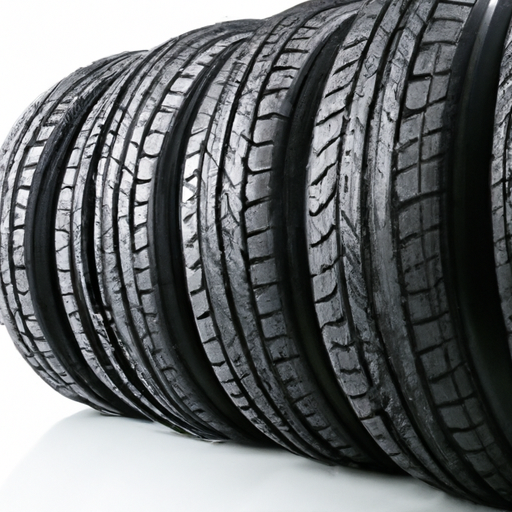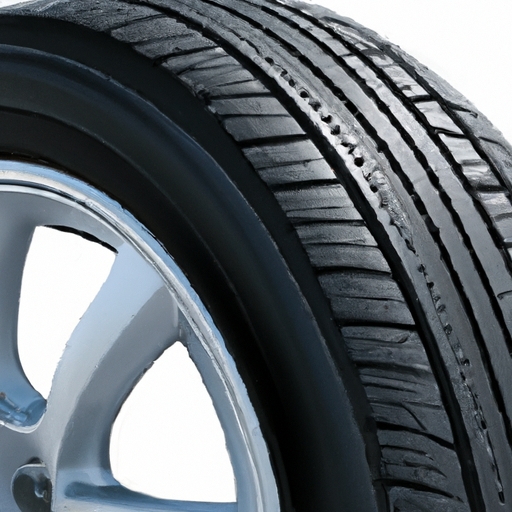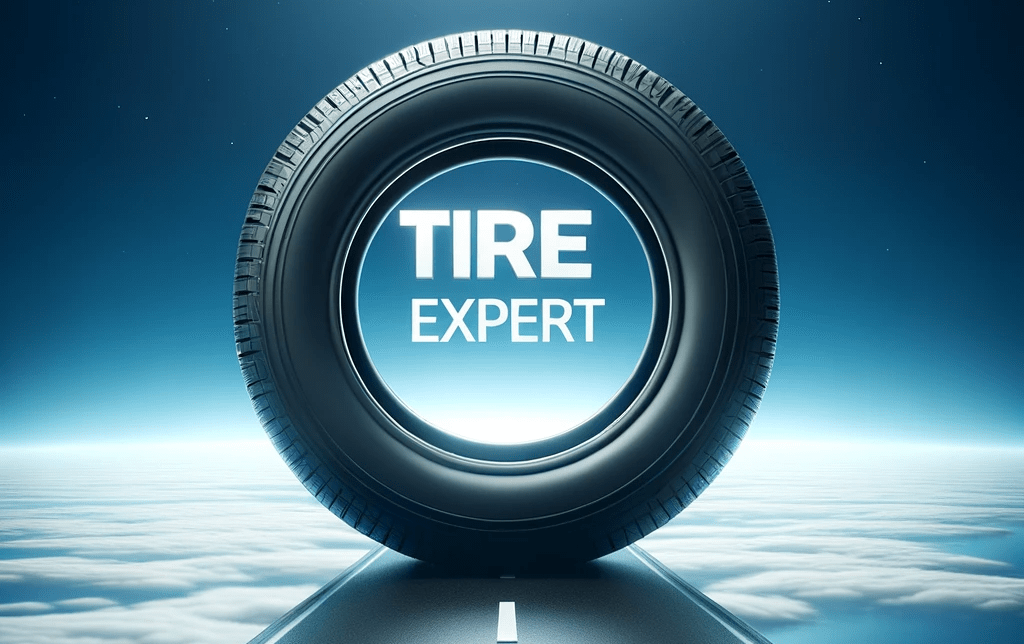In the world of tire options, summer tires are often praised for their exceptional road grip and performance. But what about road feedback? Have you ever wondered if summer tires provide a more communicative driving experience compared to other types? From the way they communicate every subtle detail of the road to the driver to their ability to enhance overall handling, let’s explore the fascinating world of summer tires and discover if they truly offer superior road feedback.
I. What are Summer Tires?
A. Definition of Summer Tires
Summer tires, also known as performance tires, are specifically designed to provide optimal performance and handling in warm weather conditions. These tires are engineered to deliver superior road grip, traction, and cornering ability on dry and wet roads during the summer months. The unique design and composition of summer tires make them an excellent choice for drivers who value precise handling and enhanced road feedback.
B. Design and Composition
Summer tires feature a tread pattern that is optimized for warm weather conditions. The grooves and channels on the tread are designed to efficiently disperse water and prevent hydroplaning, while maintaining maximum contact with the road surface. The rubber compound used in summer tires is also different from that of other types of tires, as it is softer and provides better grip on dry roads. The sidewalls of summer tires are usually stiffer, which enhances steering response and overall stability during cornering. The combination of these design elements results in superior performance and road feedback in summer tires.
II. Other Types of Tires
A. All-Season Tires
All-season tires are designed to provide acceptable performance in various weather conditions, including dry, wet, and light winter conditions. These tires are a popular choice for drivers who want the convenience of not having to switch tires for different seasons. While all-season tires offer decent road feedback, they do not provide the same level of performance and handling as summer tires in warm weather conditions.
B. Winter Tires
Winter tires, also known as snow tires, are specifically designed to provide optimal performance in cold weather conditions, including snow, ice, and low temperatures. These tires feature a different tread pattern with deeper grooves and beveled edges to provide better traction on slippery surfaces. While winter tires excel in winter conditions, they may not offer the same level of road feedback and performance as summer tires in warm weather conditions.

III. Road Feedback and its Importance
A. Definition of Road Feedback
Road feedback refers to the information and signals that are transmitted from the road surface to the driver through the tires. It includes factors such as steering responsiveness, traction, cornering grip, and overall handling characteristics. Road feedback is crucial for drivers as it allows them to have a better understanding of the road conditions, enabling them to make timely and appropriate adjustments to their driving behavior.
B. Importance of Road Feedback in Driving
Good road feedback is essential for safe and enjoyable driving. It allows drivers to have better control over their vehicles, especially during maneuvers such as braking, cornering, and accelerating. The information provided by the tires through road feedback helps drivers make informed decisions and react appropriately to unexpected situations on the road. Furthermore, enhanced road feedback can contribute to increased driver confidence and overall driving satisfaction.
IV. Factors Affecting Road Feedback
A. Tire Design and Construction
The design and construction of tires play a significant role in the road feedback they provide. Summer tires are engineered with specific tread patterns, rubber compounds, and sidewall stiffness to optimize road feedback in warm weather conditions. The unique design elements, such as wider grooves and sipes, allow for efficient water evacuation and better grip on dry roads.
B. Tread Pattern and Depth
The tread pattern and depth of a tire also impact road feedback. Summer tires typically have a shallower tread depth compared to all-season or winter tires. This shallow tread depth allows for more direct contact with the road surface, improving traction and responsiveness. However, it is important to note that the shallower tread depth may result in reduced performance in wet or snowy conditions, making summer tires less suitable for such weather.
C. Tire Pressure
Proper tire pressure is essential for optimal road feedback. Underinflated or overinflated tires can negatively affect road grip and handling, reducing the overall road feedback. It is important to regularly check and maintain the recommended tire pressure for summer tires to ensure optimal performance and road feedback.
D. Tire Width
The width of the tire can also impact road feedback. Wider tires generally provide better road contact and increased grip, resulting in enhanced road feedback. Summer tires often have wider widths compared to all-season or winter tires, contributing to their superior performance in warm weather conditions.
E. Tire Compound
The rubber compound used in summer tires is specifically formulated to provide better grip on dry roads. The softer rubber compound used in summer tires increases the tire’s ability to conform to the road surface, resulting in enhanced road feedback. However, it is important to note that the softer rubber compound may wear out faster in comparison to harder compounds used in all-season or winter tires.
F. Vehicle Suspension and Alignment
The suspension and alignment of the vehicle also impact road feedback. Properly aligned and well-maintained suspension systems ensure that the tires remain in optimal contact with the road surface, enhancing road feedback. Regular alignment checks and suspension maintenance are key to preserving the performance and road feedback of summer tires.
G. Road Surface Conditions
The condition of the road surface also affects road feedback. Smooth and well-maintained roads generally provide better road feedback compared to rough or uneven surfaces. Summer tires are designed to excel on smooth road surfaces, providing optimal road feedback in warm weather conditions.

V. Performance of Summer Tires in Road Feedback
A. Tread Design for Enhanced Road Feedback
The tread design of summer tires is specifically optimized to provide enhanced road feedback. The wider grooves and channels on the tread efficiently disperse water, reducing the risk of hydroplaning, and maintaining excellent road contact. The sipes and blocks on the tread also contribute to improved traction and cornering grip, enhancing the overall road feedback of summer tires.
B. Stiffer Sidewalls and Enhanced Steering Response
Summer tires typically have stiffer sidewalls compared to other types of tires. This enhanced sidewall stiffness translates to better steering response and overall stability during cornering. The stiffer sidewalls ensure that the tire quickly responds to driver inputs, providing a heightened sense of road feedback.
C. Improved Traction and Cornering Grip
The rubber compound used in summer tires provides excellent traction on dry roads, further enhancing road feedback. Summer tires offer superior grip and cornering abilities, delivering precise handling and feedback during curves and maneuvers. The increased traction and cornering grip allow drivers to fully experience the road and obtain accurate feedback from the tires.
D. Responsiveness to Driver Inputs
Summer tires are known for their responsiveness to driver inputs, translating to improved road feedback. The combination of the tire’s design, construction, and rubber compound results in a tire that is highly alert to steering, braking, and accelerating inputs. This responsiveness enables drivers to have a better sense of control and feedback from the road.
E. Noise and Ride Comfort
While summer tires excel in road feedback, it is important to note that they may produce more noise compared to all-season tires. The unique tread pattern and rubber compound of summer tires may result in increased road noise. However, advancements in tire technology have led to the development of quieter summer tires, mitigating this potential drawback. Additionally, some summer tires are designed with features that enhance ride comfort, ensuring a smooth and enjoyable driving experience.
VI. Comparison with All-Season Tires
A. Road Feedback Differences
When comparing road feedback, summer tires generally outperform all-season tires. The design, tread pattern, and rubber compound of summer tires are specifically optimized for warm weather conditions, resulting in enhanced road feedback and performance. All-season tires, although versatile in various weather conditions, do not provide the same level of road feedback as summer tires.
B. Performance in Different Weather Conditions
All-season tires are designed to offer acceptable performance in different weather conditions, including mild winter conditions. However, their performance in warm weather falls short compared to summer tires. Summer tires provide superior road feedback, traction, and cornering grip in warm weather, ensuring optimal performance and safety. It is important to consider the specific weather conditions in your area when choosing between all-season and summer tires.

VII. Comparison with Winter Tires
A. Road Feedback Differences
When it comes to road feedback, summer tires and winter tires serve different purposes. Winter tires are designed to provide optimal performance in cold weather conditions, such as snow and ice. While they excel in these conditions, winter tires may not offer the same level of road feedback on dry or wet roads compared to summer tires. Summer tires, on the other hand, provide superior road feedback in warm weather conditions, ensuring precise handling and performance.
B. Performance in Different Weather Conditions
Winter tires are specifically engineered to deliver excellent traction and grip in winter conditions, making them essential for safe driving in snowy and icy environments. Summer tires, with their unique design and rubber compound, are optimized for warm weather conditions, offering superior road feedback and performance. When considering winter conditions, it is important to switch to winter tires for the best performance, while using summer tires during the warm months for enhanced road feedback and handling.
VIII. Considerations for Choosing Summer Tires
A. Climate and Driving Conditions
When choosing summer tires, it is important to consider the climate and driving conditions in your area. If you live in an area with consistently warm weather, summer tires are an excellent choice for their enhanced road feedback and performance. However, if you experience frequent rain or occasional cold snaps, it may be worth considering all-season tires that offer a balance between performance and versatility.
B. Frequency and Type of Use
Consider the frequency and type of use when selecting summer tires. If you frequently drive on highways or enjoy spirited driving, summer tires can provide the optimal road feedback and performance you desire. However, if your driving consists mostly of daily commuting or involves heavy loads, all-season tires may offer better durability and longevity.
C. Budget and Cost
Budget and cost should also be considered when choosing summer tires. While summer tires offer superior road feedback and performance, they may come at a higher price compared to all-season or winter tires. It is important to find a balance between budget and performance requirements to ensure you get the best value for your money.

IX. Maintenance and Care for Summer Tires
A. Proper Inflation and Regular Pressure Checks
Maintaining proper tire inflation is crucial for the optimal performance and road feedback of summer tires. It is important to regularly check and maintain the recommended tire pressure as indicated by the vehicle manufacturer. Proper inflation ensures that the tires maintain their intended shape and provide the desired road contact, enhancing road feedback and overall performance.
B. Regular Tire Rotations
Regular tire rotations are essential for maintaining even wear and maximizing the lifespan of summer tires. By rotating the tires at recommended intervals, the wear patterns are distributed more evenly, ensuring consistent road feedback and performance. Consult your vehicle’s owner’s manual or a tire professional for the recommended rotation intervals for your summer tires.
C. Alignment and Suspension Checks
Regular alignment and suspension checks are important for maintaining optimal road feedback. Properly aligned and well-maintained suspension systems ensure that the tires remain in optimal contact with the road surface, enhancing road feedback and overall handling. It is recommended to have your vehicle’s alignment and suspension checked by a professional at regular intervals or when you notice any signs of misalignment or suspension issues.
D. Storage and Seasonal Changes
Proper storage of summer tires during the offseason is crucial for their longevity and performance. When not in use, it is recommended to store summer tires in a cool, dry, and shaded location away from direct sunlight and extreme temperatures. Additionally, it is important to inspect the tires for any signs of damage or wear before reinstallation for the summer season. Regularly monitor the condition of summer tires and replace them when they reach their wear limit.
X. Conclusion
A. Summary of Road Feedback Comparison
Summer tires provide better road feedback compared to other types of tires, such as all-season and winter tires, in warm weather conditions. The unique design features, including tread pattern, rubber compound, and sidewall stiffness, contribute to the enhanced road feedback and performance of summer tires. The improved traction, cornering grip, and responsiveness to driver inputs make summer tires an excellent choice for drivers who prioritize precise handling and road feedback during the summer months.
B. Factors to Consider when Choosing Summer Tires
When selecting summer tires, it is important to consider factors such as climate, driving conditions, frequency and type of use, and budget. Additionally, regular maintenance and care, including proper inflation, tire rotations, alignment checks, and storage, are essential for maximizing the road feedback and longevity of summer tires.
By choosing summer tires that are suitable for your specific needs and taking proper care of them, you can enjoy enhanced road feedback, superior performance, and a safer and more enjoyable driving experience during the summer months.


